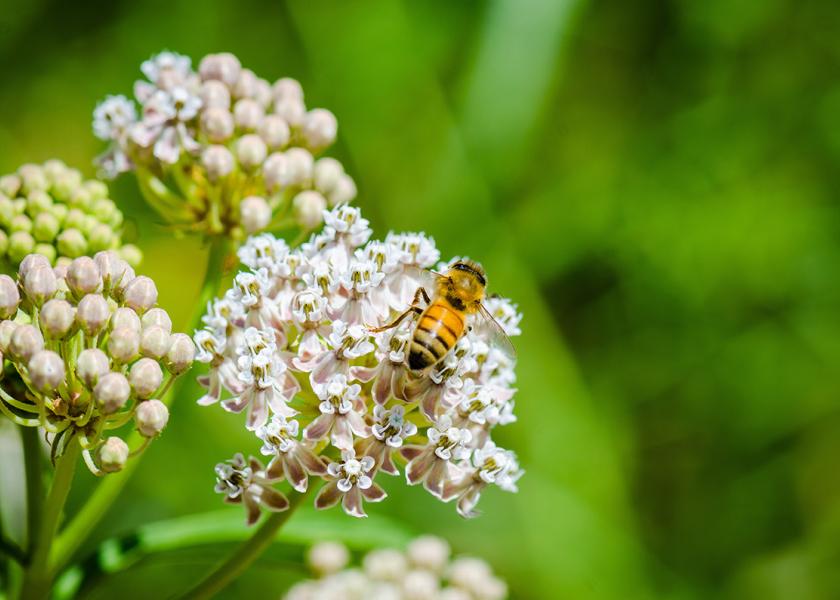Whole Foods introduces new pollinator policy for fresh produce and floral

In a move to support pollinators and the critical role they play in the food system and the environment, Whole Foods Market has introduced a new pollinator policy, according to a news release.
The Austin, Texas-based company says it has long championed pollinator health through its commitment to organic agriculture, which prohibits toxic persistent pesticides.
As part of the new pollinator policy, by 2025, the company says it will:
- Require all fresh produce and floral growers to implement an Integrated Pest Management system, which prioritizes preventative and biological pest control measures and reduces the need for chemical pesticides.
- Prohibit the use of nitroguanidine neonicotinoids (clothianidin, dinotefuran, imidacloprid and thiamethoxam) in all potted plants it sells.
- Encourage all fresh produce and floral suppliers to phase out the use of nitroguanidine neonicotinoids.
In addition to honeybees, Whole Foods Market recognizes native pollinators — such as bumble bees, wasps and butterflies — are critical to the food system and an important indicator of biodiversity.
“We understand the important role pollinators play in our food system and, through this policy, will build on our long legacy of supporting biodiversity and pollinator health,” Karen Christensen, senior vice president of perishables and quality standards for Whole Foods Market, said in the release. “This is another critical step forward in our journey of climate-smart agriculture as part of our purpose to nourish people and the planet.”
The company says it engages its foundations and internationally recognized third parties to create campaigns that raise awareness of pollinators and their impact. In addition, its Whole Kids Bee Grant Program helps schools and nonprofit organizations receive support for educational beehives and bee programming so students can observe bees up close and learn more about the vital role of pollinators. Since 2014, the Whole Kids Bee Grant program has awarded more than 850 educational beehives to schools and nonprofits with support from The Bee Cause Project, the release said.
Whole Foods Market says it continues to work across the industry to encourage all fresh produce and floral suppliers to phase out the use of nitroguanidine neonicotinoids, which are particularly harmful to pollinators, and pave the way for other solutions.
Whole Foods Market suppliers like Rainier Fruit continue to demonstrate its commitment to advancing pollinator health by maintaining 150 acres of dedicated pollinator habitat, in addition to 325 acres of Bee Better Certified orchard in partnership with the Xerces Society for Invertebrate Conservation, according to the release.
“Every single piece of fruit we grow requires pollination. We wouldn’t have a crop without honeybees, so pollinator health is of utmost importance for us as farmers,” Mark Zirkle, president of Rainier Fruit, said in the release. “We’re appreciative of Whole Food’s advocacy and look forward to continued efforts towards more sustainable agriculture.”
Related link: More information on how Whole Foods Market is protecting pollinators







